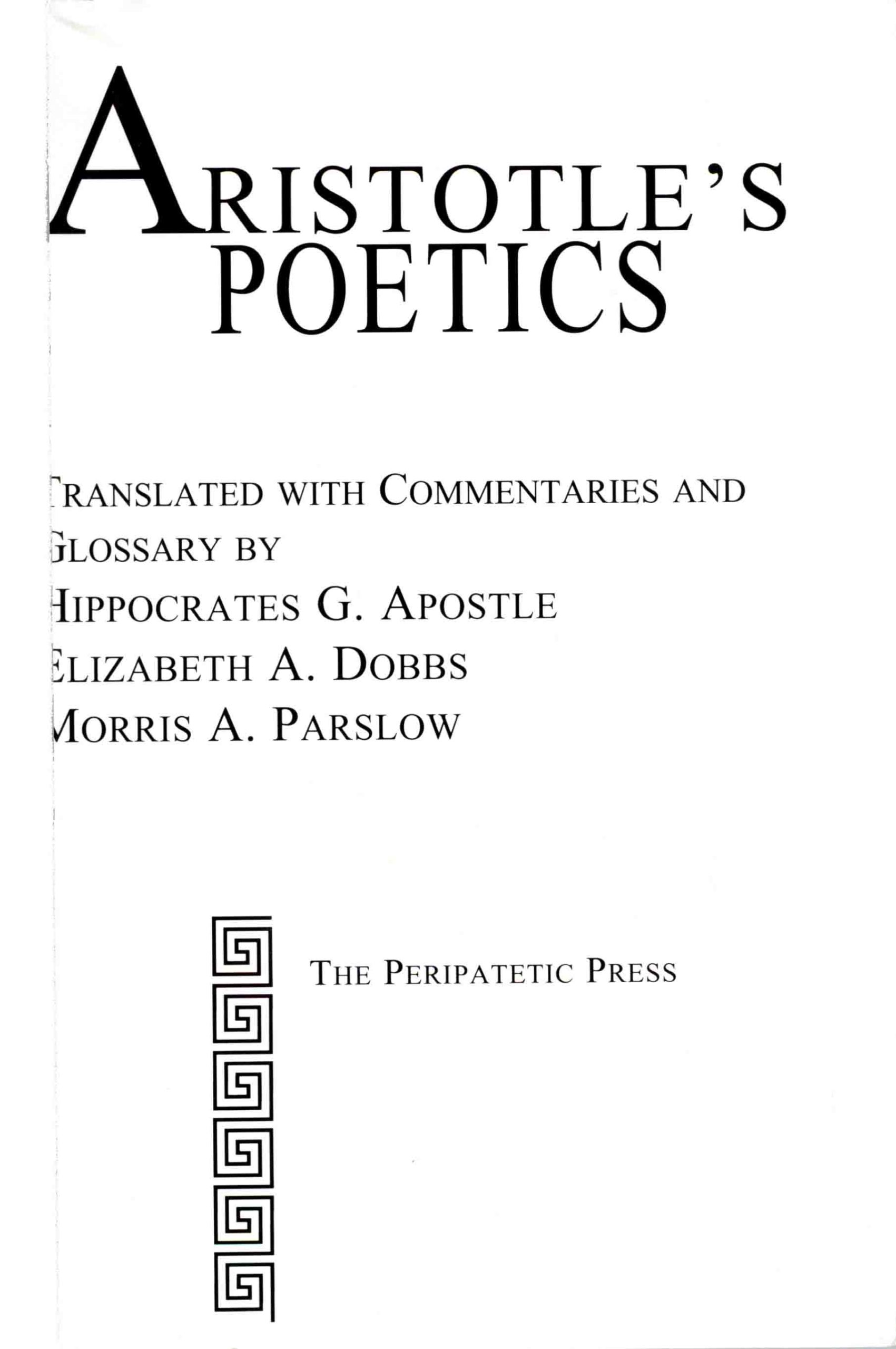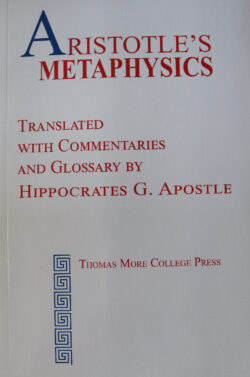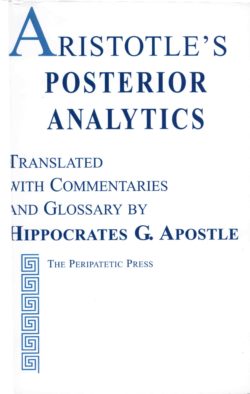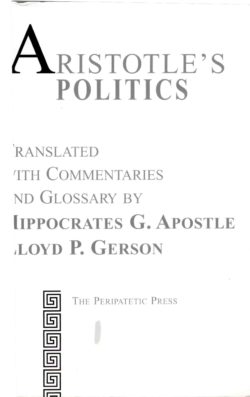A Selection from the Preface
This translation of Aristotle’s Poetics is an attempt to place before a wide public an accurate rendering into current English of the most influential work of literary criticism in Western culture. One may dispute the correctness of Alfred North Whitehead’s saying that all philosophy is a set of footnotes to Plato, but there is no doubt that subsequent literary criticism, at least in Europe and the Americas, follows in the paths first opened up by Aristotle.
The Poetics has set the agenda for the discussion not only of tragic drama, but of literature as a whole. The Poetics offers, among other contributions to literary criticism, a complex and subtle definition of tragedy, an acute model for the analysis of tragic plot, an extended contrast between dramatic and narrative form, and suggestive treatments of character, spectacle, and language. In addition to this, Aristotle offers conceptions of the aims of art and its psychological basis and conceptual tools for determining its kinds and modes. He also suggests some of the pitfalls encountered in the typical procedures of literary criticism.
Particularly from the Renaissance on, the Poetics has been the foundation of both literary theory and “practical” criticism, and it has been translated and re-translated, interpreted, applied, and cited in polemics as a final authority. Indeed, the seventeenth-century English satiric poet, Samuel Butler, complained that
“No pudding [clown] will be suffered to be witty
Unless it be to terrify or pity,”
and Horace Walpole, equally aware of his contemporaries’ obsession with the Poetics, amused himself with giving thanks that Aristotle had come after rather than before Homer, thus sparing the epic poet the labor of strict conformity to the ultimate critic. The ossification of ideas often attributed to Aristotle during the Enlightenment was only one kind of distortion to which the Poetics has been subject. Through-out the history of its transmission, translation, and interpretation, the understanding of the Poetics has been subject to errors due to faulty texts or uninformed translation, or to distortions arising from interpretations peculiar to the critic or to the attitudes and concerns of a particular period or school of thought. It should come as no surprise that some Victorian and early twentieth-century translators and critics thought that Aristotle’s term “hamartia” (best understood as “mistake” or “error”) was properly rendered by a phrase such as “tragic flaw,” with its overtones of moral defect and culpability. Such a rendering answered to the moralizing tendencies of those critics, although it clearly led to the contradiction of Aristotle’s thought elsewhere in the Poetics. Aristotle condemns as weak and untragic the “double ending” in which the bad are punished and the good rewarded or left unharmed. But to think of errors in judgment made by the protagonists of tragedy as guilty errors is to see all tragedies as tending to punitive outcomes, hardly Aristotle’s intention.
Similarly, the so-called “Revolution of the Word” associated with modern poets like T.S. Eliot and with the American “New Critics” (Cleanth Brooks, Robert Penn Warren, et al.) has led some to question the usefulness of the Poetics because of its supposed neglect of lexis, a concern with language and particularly diction and syntax. Admittedly, it is difficult to apply to modern English the kinds of analysis Aristotle proposes as relevant to classical Greek. But properly understood, the principles he states are applicable. In any case, the isolation by some recent critics of the study of diction and syntax from their contexts (i.e., from plot and character) neglects the common experience of how ambiguous and mercurial language can be apart from such contexts and ignores the consequence that only within such contexts do the meanings and emotional tones of language become clear. These instances are offered not only as evidence that the Poetics can be and has been misinterpreted in the course of time. They are offered as evidence also of the continuing relevance of Aristotle’s work to the changing issues in literary criticism.
Because of the nature of the text and the history of its transmission, some scholars have thought that the Poetics suffers from vital omissions or arbitrary emphases in the materials it presents. No doubt the text of the Poetics as we have it would differ from the text Aristotle might give us if he were alive today. But the textual difficulties have…



